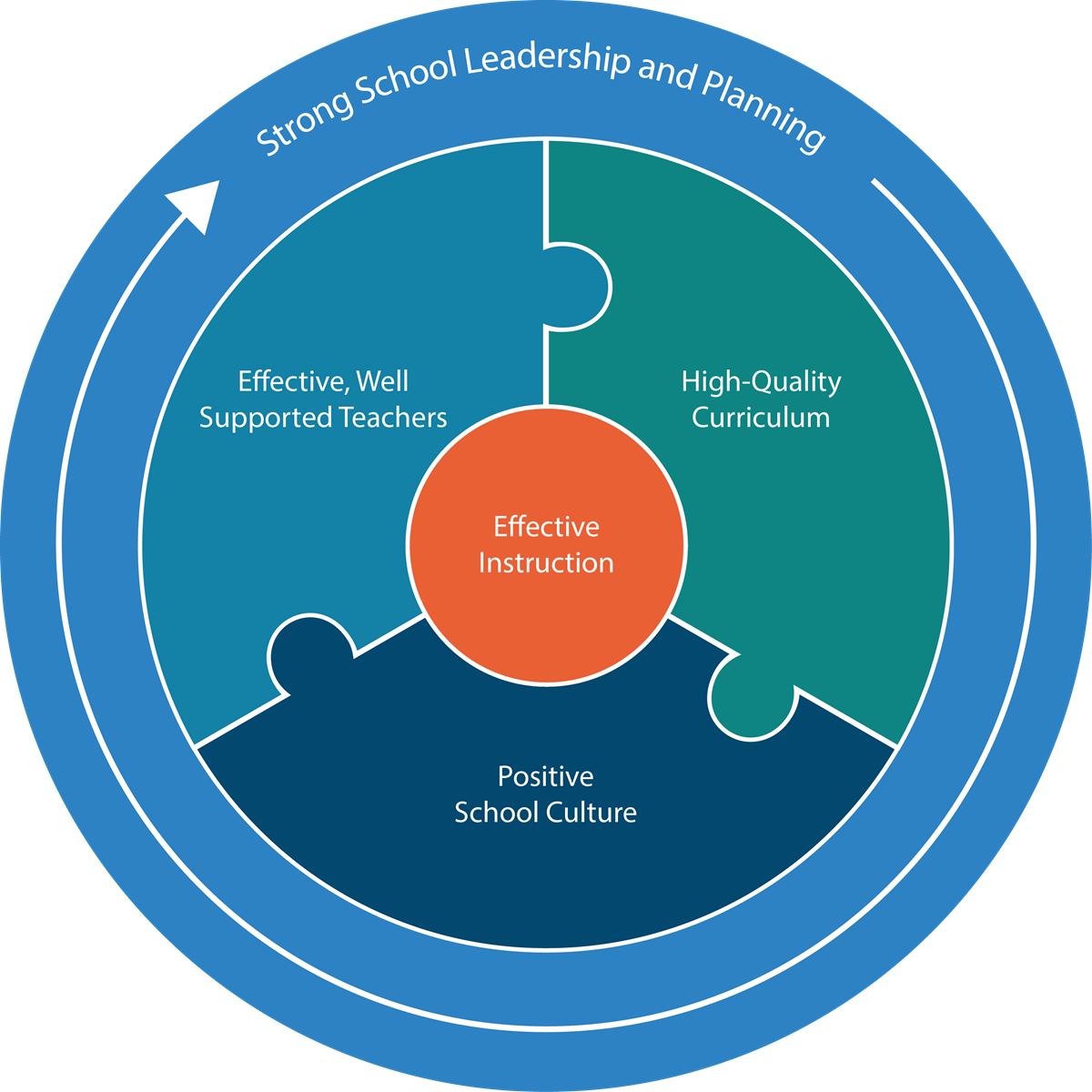School Improvement
Attendance
As educators strive to provide high quality instruction through engaging, interactive lessons, they continue to ponder on how to reach the students they miss – ones chronically absent from school Resource to reduce chronic absenteeism, excused or unexcused, may be “one click away” on websites such as Attendance Works. The Attendance Works website provides an array of resources including three tiers of intervention which align strategies to the level of student need.
Attendance Works
Attendance Works
Building Positive Relationships
“No one cares how much you know until they know how much you care.” This quote is critical for educators, who quickly come to realize the importance of building positive relationships with students and parents. One of the most effective practices to build positive relationships is to show interest and curiosity in students' lives. Relationship ties can then be solidified by using students' topics of interest in class activities and assignments.
Resources
Cultural Responsiveness
Research has shown that there is power in building positive relationships with students. Responsive practices and positive relationships can lead to decreases in behavior problems and improved performance. “Low-income students who have strong teacher-student relationships have higher academic achievement and more positive social-emotional outcomes than their peers who do not have a positive relationship with a teacher (Murray & Malmgren (2005).” Responsiveness does not require “adding something” to our already full plate. It only requires increased awareness of behavior in order to respond more effectively.
Here are few shareable, practical resources to help you jump-start your responsive practices:
The Power of Positive Relationships
Educator's Guide to Preventing and Solving Discipline Problems
3 Tips to make any lesson more Culturally Responsive
Office Chat: Culturally Responsive Training
Cultural Responsiveness Contact
Resiliency / Mindset
There is no magic wand or perfected approach to ensure resilience and growth mindset in students. However, having students develop skills for resilience is a great avenue to address common achievement and attendance issues. The ability to be resilient enables students to convert negative aspects of their lives such as peer pressure, lack of support at home, and poverty into fuel to achieve success. Region 7 ESC offers on-going support to help schools promote resilience and growth mindset in students.
“What is he thinking?” may be a question we ask in regards to a student with chronic absenteeism. Another question could be, “What is his mindset?” Some students choosing a pattern of absenteeism may have a fixed mindset. Characteristics of a fixed mindset:
- I’m either good at it or not
- If I fail, I am no good
- I give up if I find something difficult
- My abilities determine everything
Students may be unaware of their mindset, and how it serves as the GPS for the pathway they take. Psychologist Carol Dweck’s mindset theories call attention to when students with fixed mindsets fail at something, they tend to internalize it as they can’t or won’t be able to do it. However, when students have a growth mindset that entails believing they can learn more or become smarter if they work hard and persevere, their GPS consistently leads them to school each morning. As educators reflect on how to reach students who are absent too often, the question “How can growth mindset be an integral part of the school’s culture?” may be an important one to ask.



